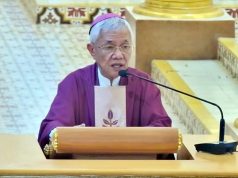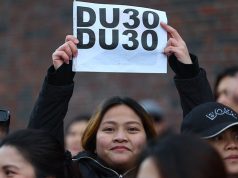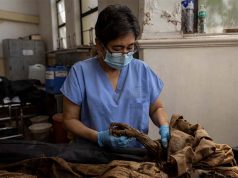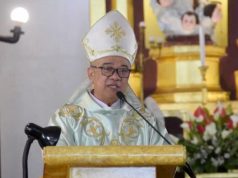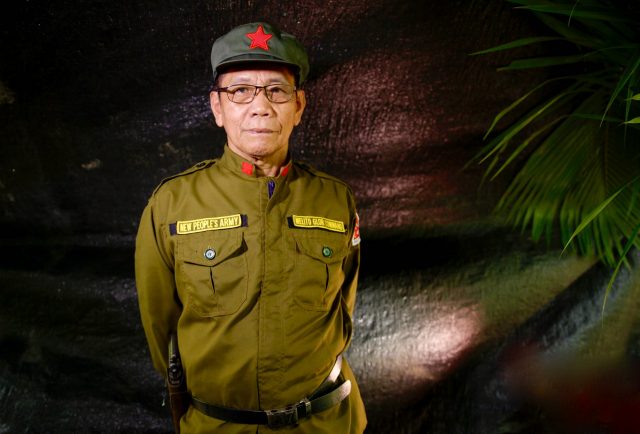
MANILA, Philippines — Communist rebels in the Southern Tagalog region gave President Rodrigo Duterte a dismal “below 50 percent” grade in his first year in office, saying “puro dakdak ang ginawa, walang material na natupad (all he did was blabber with no material achievement).”
Most schools in the country consider 75 percent the minimum passing grade.
“Walang pagbabago. Walang nagawa sa mga unang pangako (No change. No fulfillment of his promises),” Jaime “Ka Diego” Padilla, spokesman of the New People’s Army’s Melito Glor Command, said in a phone interview Tuesday, a day after Duterte’s second state of the nation address.
Padilla pointed to the administration’s war on drugs, which has claimed the lives of thousands of overwhelmingly poor people but hardly any drug lord.
The Melito Glor spokesman, who was first introduced to the public last November, was also among the first rebel personalities to openly criticize Duterte, who used to cast himself as a self-styled “leftist” and even “socialist”.
Padilla told media then that he saw parallels between Duterte and the late dictator Ferdinand Marcos.
“Ang aking pagkilala kay Duterte ay nasa pagitan ng progressive element lamang ito, sa kaibuturan ng kanyang katangian ay reaksyornaryo ito (I see him as only moderately progressive. Deep inside, he’s a reactionary),” he said at the time.
He also dismissed Duterte’s professed desire to sever ties with the “imperialist” United States as bluster.
“Salita pa lamang siya lagi. Wala pa siyang materyal na hakbangin kung papaano niya ipapakita sa sambayanang Pilipino ang anti-impeng standpoint (It’s all talk and little else, so far; he still has to flesh out his anti-imperialist stance).”
Asked to react to Duterte’s tirade against the US during the SONA, when he demanded the return of the Balangiga Bells, Padilla said: “Ang pagmumura ay hindi patunay ng pagiging anti-US niya (Cursing is not proof that he is anti-US).”
He pointed out that Duterte has not moved to abrogate what the Left considers onerous defense treaties with the Americans such as the Enhanced Defense Cooperation Agreement and the Visiting Forces Agreement as well as the “neo-liberal economic policies” he said the administration’s economic managers continued to pursue.
Duterte’s inner circle, he added, “remains strongly pro-US and anti-people.”
Padilla also fended criticism that the revolutionary movement had been too “soft” on Duterte as the rebels and government tried to keep peace talks on track even as the drug war deaths were piling up and skirmishes as well as human rights violations continued to take place in the countryside.
“Hindi sa malambot (It was not because we were soft),” he said, “subali’t may pagtingin din sa halos tatlong dekada niyang pagiging mayor (of Davao City) na nagkaroon siya ng malapit na ugnayan (but there was also recognition of his almost three decades as mayor when he forged close ties)” with the movement, which sparked hopes of building an “alyansa para sa interes ng bayan (an alliance for the people’s interests).”
But Padilla acknowledged that it was evident in Duterte’s first hundred days that “hindi siya sumunod sa mga sinasabi niya (he was not fulfilling what he promised).”
And “habang tumatagal, lumalabas unti-unti ang tunay na kulay niya na kontra-mamamayan at pro-US niya … laluna ngayon sa ilalim ng (as time passes, his true anti-people and pro-US colors are becoming more evident … especially now under)” martial law, he added.
Padilla also scoffed at Duterte’s vow to recruit up to 35,000 soldiers and policemen and wage war against the communists after deciding to no longer negotiate with them.
“Magiging malaking pagkakamali niya ‘yan (That will be a great mistake for him),” said Padilla, who started out as a young activist and went underground when Marcos declared martial law in 1972.
Back then, he pointed out, “we were weak but grew stronger.”
After almost half a century of armed struggle, he said, “suntok sa buwan na madudurog niya (Duterte) tayo (it’s wishful thinking that he can crush us).”
Padilla was also skeptical that martial law would remain confined to Mindanao, saying Duterte was “testing the waters in Mindanao,” with Marawi as his “laboratory,” and that, unless people registered strong opposition, he is likely to expand military rule, possible over the whole country.
“Taumbayan ang susi sa pagbigo nito (The people are key to thwarting this),” he said.
Despite the swift deterioration of the prospects for peace, Padilla said, “ang kilusan ay lagging bukas (to negotiations) sapagka’t ang pakay lang naman natin ay laging sa panig ng mamamayan (the movement remains open because our intentions are only for the good of the people).”
Thus, he said, Duterte should return to the peace talks without preconditions or demanding a prior ceasefire, which the rebel spokesman would be tantamount to “surrender and disarming” them and, thus, “pagtanggal sa lahat ng dahilan (take away all the reason)” to resolve the root causes of armed rebellion.
It would be useless, he added, for Duterte to threaten or bully them.
“Kami’y mananatiling matatag anuman ang mangyari (We will remain firm come what may),” he said.





